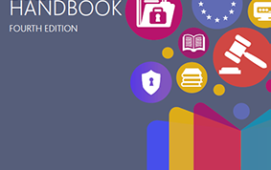
Capturing supply-chain sustainability data is elusively difficult but nevertheless is necessary to manage and mitigate ESG risk and also required as new regulations oblige companies – and their investors – to declare the impact their logistics services are having on the environment.
The challenge has its root in the huge multitude of companies that comprise even a single supply chain. Mostly small- and medium-sized enterprises, they are beyond the reach of non-financial disclosure rules, which tend to focus on listed and larger private companies.
Trade finance start-up Twinco Capital believes it has a solution to improving the supply chain ESG risk management, by leveraging on its responsible finance solution to also improve the data-gathering process. The Madrid and Amsterdam-based lender’s core business is providing suppliers oflarge buyers in the retail and apparel sectors with up-front finance to produce goods for their clients. In the process of doing that, Twinco gathers and analyses performance and sustainability information on suppliers.
That information is used by Twinco to assess risk and to decide on the terms and conditions under which it can provide funding to the supplier, who are mostly SMEs. Twinco shares the intelligence from the data it gathers, aiming to provide buyers with a tool to assess, monitor and report on their suppliers’ ESG performances, as well as present the opportunity to engage with them to mitigate associated risks.
“Very early on, we understood that from both a vision perspective and a risk mitigation perspective, the inclusion of ESG metrics was absolutely fundamental for our business,” Twinco chief executive and co-founder Sandra Nolasco told ESG Insight.
“We can provide affordable funding to SMEs in emerging markets because we leverage the strength of the relationships between buyers and suppliers. ESG risks can significantly disrupt those relationships. Therefore assessing ESG metrics, and mitigating ESG risks is key for us, as a responsible funding agent.”
This feature of Twinco’s funding platform is particularly valuable for buyers, who tend to be large, listed retailers and apparel providers, who are under pressure from regulators to ensure their value chains are operating sustainably. Any breach will reflect poorly on the buyer’s own ESG metrics and lead to regulatory censure or reputational damage. The cost may also be borne by the supplier, who is likely to lose future contracts with their clients if they fail to mitigate the sustainability risks they face.
Closing Gaps
Supply-chain data is seen by many observers as the last piece of the ESG data jigsaw puzzle to be fully tackled. The EU’s Corporate Sustainability Reporting Directive (CSRD) and similar frameworks being created around the world will eventually require all larger firms that are based or operate in the bloc to report their Scope 3 emissions – those from their full value chain.
For investors, this should provide the means of closing many ESG data gaps because it will compel the firms in which they invest to disclose data that currently they are only asked to provide voluntarily.
A number of FinTech companies already provide services that enable the gathering of some supplier data. Sustainalytics launched a Corporate Supply Chain ESG Solutions, and AI platform o9 is among firms that have created software to track and measure companies’ impacts. Tata Consultancy Service (TCS) is developing an algorithm that uses AI-derived data to estimate the clients’ total emissions.
Most rely to some extent on estimates or proxy data. Twinco, however, gets its data straight from the suppliers, the buyers and the funding transaction flows, and combines it with several external databases.
“There are a lot of scoring products today but we found that there’s no correlation between the scores assigned to public companies and if you go to the SMEs in emerging markets that we’re trying to measure there’s often no information or scoring at all,” Nolasco said. “It’s very difficult to understand exactly what it means from a risk perspective.”
Twinco went about formulating its own ESG risk assessment methodology for suppliers that use its platform . The feature establishes where suppliers are exposed to natural and social risks and provides several metrics and specific insights on how they are addressing any sustainability challenges.
Rapid Growth
Twinco, which was created in 2019, has seen its business triple each year and has funded more than US$200 million in purchase orders. It typically pays suppliers 60 per cent of their order fee up front, enabling them to buy the materials needed to meet their clients’ orders. The balance is paid once the products have been delivered and the buyer has accepted the invoice. The buyer pays Twinco upon invoice due date..
The platform funds hundreds of suppliers, who are largely based in South Asian emerging markets. Twinco has raised more than €50m in funding and demand for its supply chain finance solution has grown so rapidly that it is seeking a further $100m.
Nolasco said the system creates a virtuous circle; buyers can identify the best-performing suppliers and offer them better trading terms, which in turn encourages laggards to make efforts to improve their metrics and win more business. Suppliers ask for a Twinco loan from their other customers, impacting other supply chains and therefore thousands of other small companies. The network effect is “very strong” and encourages other firms to follow suit, Nolasco said.
Additionally for the buyers, it reduces costs and risks, including ESG risk exposure. Having better and more responsible performance also helps to lower Twinco’s own exposure to loan default risksenabling it to provide better funding terms.
Asset Class
“Twinco’s ESG risk assessment tool is being test-driven with some of our main customers,” Nolasco said. “In general, we believe that the combination between funding and ESG risk assessment insights provides a unique tool to manage ESG risks in the supply chain and we will continue to improve it and fine tune it as we gain scale.”
By embedding ESG risk management criteria in its purchase order finance solution, Twinco says it also creates an opportunity for investors.
“Structuring it as a trade-related, short-term, funding vehicle, Twinco offers mission-driven investors the opportunity to provide liquidity to SMEs in emerging markets, fostering sustainable production and inclusive growth,” Nolasco said. “It is like the better, fairer and more inclusive version of trade finance as an asset class.”
Subscribe to our newsletter




